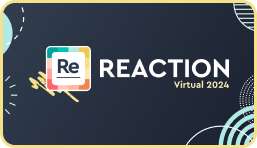Hillary Gamblin:
Can you share a story that illustrates a teacher candidate that effectively reflected on their teaching?
Debra Lively:
Sure. Before I actually share the story, though, I just want to make sure we’re all on the same page that reflection is like systematic and intentional process that allows the pre-service teachers an opportunity to really consciously review their teaching. And I think GoReact allows that for the on action that they have an opportunity to really see themselves visually after. And I had this student, one of the best students that I’ve ever had as far as in the academic and methods courses and stuff like that, just a wonderful student, just knew her content, always got assignments in on time. Everything was wonderful and perfect.
Debra Lively:
Now she got to student teaching and I was her supervisor. And she was in an early childhood special education classroom. And so I’m there observing her, and I’ve got my camera and I’ve got taking my notes, and I’m watching her, and she’s reading a story, a read aloud to these little kids, and it was horrible. I mean, she was reading just like this and really didn’t have inflection, didn’t really have good rhythm. It was horrible. And these little kids weren’t really paying attention, and it was just a struggle. And I’m thinking, oh my gosh, how am I going to tell this person how horrible they are?
Debra Lively:
Because she’s a great student. I didn’t want to tell her that. I felt bad about that. Plus, I wouldn’t really tell her that because the way I encourage reflection is not by telling them anyway. But in my mind, I’m just stressing out. Well, so she was done, and then we went out in a little area where we could look at the video, and I put the video, and I said to her, “Okay. As you look at your video, just tell me what you see. Tell me some of the things that you see.” It wasn’t even 10 seconds, 15 seconds into the video, and she’s like, “Is that me? Is that how I look?”
Debra Lively:
Now, typically students, when they first look at video, they think, oh, my hair looks crappy, or I look too fat, or something like that. But she was talking about her expression. She said, “Debbie.” She said, “I have no expression.” She said, “No wonder the kids, their attention is so poor.” She made that discovery on her own. And then instead of saying, “Well, yeah, you’re right,” I just said, “Okay, well, tell me more. Tell me more exactly what you’re seeing. Let’s really think about this.”
Debra Lively:
And as she progressed, she started talking about, “Well, my inflection doesn’t really vary. Well, my facial expression doesn’t really support what’s in the story.” She said, “I’m not really pausing like I need to pause.” All these are so important to communication, especially with young children with special needs. She took that upon herself. She went home, she told her mother. She said, “Oh, I really did poorly on this,” blah, blah, blah. And I said to her, “Don’t think about how you did. Let’s think about where you can go and what you can do to improve your own practice. This is about you taking ownership and making those changes.”
Debra Lively:
And so she told her mom, and her mom said to her, “Well, I’m so glad somebody told you.” And I’m thinking, wow, she must have all along not been a reader that used a lot of expression. So she video recorded herself. She stood in the mirror and she practiced before she did lessons. She texted me and emailed me and said, “Okay, are you coming on such and such a day? I can’t wait for you to see what I’m doing”
Debra Lively:
Now, did she go from here to way over there? No, but did she make some progress? Absolutely. And she made the progress based on her own thinking, not because I told her something. So I guess that’s an example of how using video and reflective practice and being independent and thinking on your own feet about how you might improve is really critical. And by the way, she got hired, and she’s a wonderful teacher doing some great things with young children.



